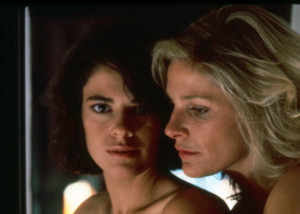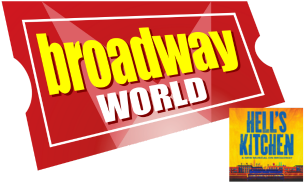BAM Presents PUNKS, POETS, AND VALLEY GIRLS: WOMEN FILMMAKERS IN 1980s AMERICA

From Wednesday, August 7 through Tuesday, August 20, BAM presents Punks, Poets, and Valley Girls: Women Filmmakers in 1980s America, a 14-day, 27-feature, 10-short series that surveys bold works by female filmmakers in a conservative decade, ranging from studio blockbusters to politically radical underground masterpieces. The series builds on BAM's previous surveys of American women filmmakers.
Following the independent breakthroughs made by women filmmakers in the 1970s, opportunities unseen since the silent era suddenly opened up for (white, straight, cis) women in the studio system in the 1980s. The result was a wave of decade-defining classics by directors like Kathryn Bigelow, Amy Heckerling, and Penny Marshall, who brought a sensitivity to female subjectivity and experience rare in mainstream cinema. Simultaneously, women filmmakers outside Hollywood continued to challenge white, heterocentric, patriarchal notions of narrative, form, and subject as seen in the radical works of the New York downtown scene, the LA Rebellion, and the burgeoning New Queer Cinema movement. These artists-pioneers like Kathleen Collins, Lizzie Borden, and Donna Deitch-defied the Reagan-era status quo to bring their stories and experiences to the screen. Says series programmer Jesse Trussell, "We're really excited to build on past series like Pioneers: First Women Filmmakers and A Different Picture: Women Filmmakers in the New Hollywood Era, 1967-1980 with this program. Women have been making films since the very earliest days of the art form but rarely factor into the traditional 'great man' narrative of film history. With this series of programs, we are spotlighting these important artists and creating a counter-history of 20th century film."The series opens with Penelope Spheeris' blistering drama of youth in revolt, Suburbia (1983), followed by screenings of her essential documents of LA punk and metal culture, The Decline of Western Civilization (1981) and The Decline of Western Civilization Part II: The Metal Years(1988). The series continues with singular New York films, including Susan Seidelman's downtown stories in the gritty Smithereens (1982) and the goofball Rivette riff Desperately Seeking Susan(1985); Lizzie Borden's vision of a radically feminist future, shot guerilla-style on the streets of New York, Born in Flames (1983); and Bette Gordon's subversive feminist noir set in a Times Square pornhouse, Variety (1983).
As more women stepped behind the camera, the types of women's stories onscreen expanded: the series includes the rarely screened gem Twice as Nice (1981), a basketball film by Jessie Maple, the first black woman admitted to New York's camera operators union; Kathleen Collins' Losing Ground(1982), a smart, complex exploration of relationships and sexuality, one of the first from the perspective of a black woman director; Joyce Chopra's unusually dark and ambiguous coming-of-age dramaSmooth Talk (1985), starring a then-18-year-old Laura Dern; a groundbreaking verité portrait of Chinese-Americans in the Mississippi Delta, Mississippi Triangle (Choy, Long & Siegel, 1984); pioneering Chicana filmmaker Lourdes Portillo's playful exploration of Chicanx identity and cultural displacement, La Ofrenda (Portillo & Muñoz, 1989); Navajo Talking Picture (1985), Darlene Bowman's ambitious and controversial work of indigenous cinema, screening with Camille Billops' portrait of addiction, Suzanne, Suzanne (Billops & Hatch, 1982); Donna Deitch's ravishing lesbian love story Desert Hearts (1985); and a program of shorts by black women filmmakers.Videos
